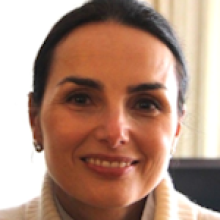How are British and EU firms responding to the changes introduced by the Brexit referendum and the Trade and Cooperation Agreement (TCA)? We propose to examine changes in the corporate structure of British and EU firms in response to Brexit.
A large and growing literature has documented that firms engaged in international trade respond to changes in uncertainty about future trade policy (Handley and Limao, 2015; Handley and Limao, 2017; Crowley, Meng, and Song, 2018; Crowley, Exton and Han, 2020; Graziano, Handley, and Limao, 2020). These studies examine trade flows and firms’ participation as exporters to foreign markets, generally finding increases (declines) in participation and trade volumes in response to reductions (increases) in uncertainty. Other studies of trade policy uncertainty have focused on labour market impacts (Javorcik, et. al., 2022; Pierce and Schott, 2016), but no previous research has explored how the corporate structures of international firms adapt and evolve in response to trade policy uncertainty and less open trading relations.
A recent study of the Trade and Cooperation Agreement implemented in 2021 found that UK and EU exports have changed asymmetrically; monthly exports from the UK to EU grew moderately while the value of exports from the EU to UK fell (Freeman, et. al., 2022). This puzzling asymmetry hints at the possibility that UK firms undertook some investments to sustain their exports to the EU. Our studies will examine (1) if firms changed their corporate structures to cope with uncertainty regarding barriers to trade and/or the introduction of new, non-pecuniary barriers to trade and (2) the extent to which changes in corporate structures can mitigate the trade-reducing impacts of trade barriers.
This project is closely related to the Keynes Funds’ objective to enhance understanding of market (in)efficiencies. Our proposed projects will examine the relationship between government policy barriers to international trade, which introduce inefficiencies into markets, and the corporate structures of market participants. In particular, the Brexit referendum vote introduced uncertainty regarding the fixed and variable costs of economic activity involving a cross-border transaction. The increase in uncertainty and the introduction of trade barriers may have disrupted functioning markets and forced firms to re-evaluate their international activities and redesign their corporate structures. Any changes to market functioning or corporate structures, in turn, could have triggered not only a reallocation of trade flows, but also a cross-border reallocation of capital. Our research will enhance understanding of these phenomena.



